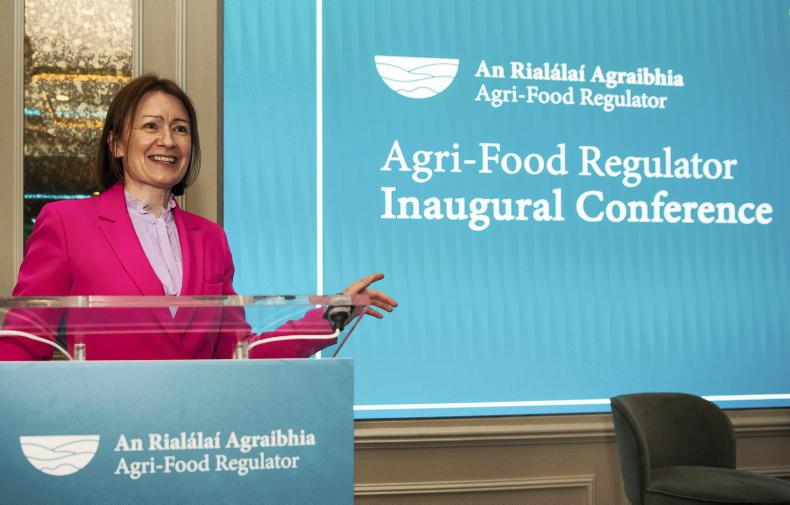This week, the Agri-Food Regulator launched a survey to find out how suppliers feel about their trading relationship with Irish retail customers.
A survey of self-selecting respondents is of limited benefit to anyone trying to enhance their understanding of the agri-food supply chain.
Every commercial trading relationship has at least an element of closely guarded trade secrets, usually motivated by fear of competitors gaining an advantage from finding out.
While there is nothing wrong with initiating surveys, the reality is that the Agri-Food Regulator needs to be given the authority and the legislative tools to do the job.
Last September, board chair Joe Healy wrote a firm letter to the Minister for Agriculture demanding that their powers be enhanced.
When the Irish Farmers Journal spoke to chief executive Niamh Lenehan back in December, a response was still awaited and that remains the position two months later.
Actions didn’t match words
The previous Minister for Agriculture made all the right noises in supporting the creation of the Agri-Food Regulator and getting the office set up was no doubt one of the achievements in his term as a Minister.
However, from the outset, it was widely recognised that the Regulator was somewhat toothless in that they required collaboration and co-operation of stakeholders to bring transparency to the agri-food supply chain.
If this approach could do the job, it would have been done years ago and there would have been no need to create an additional bureaucracy of an Agri-Food Regulator.
That it was deemed necessary to do so should have been a trigger to give the office real powers to demand, not just to seek information to do its job.
Unfortunately, within its first year of operation, the office found out it they didn’t have the necessary teeth when some significant Irish retailers failed to fully co-operate with what looked like an innocuous egg supply chain investigation.
Legislation is a necessity, not an option
Of course, what is needed now is more than a letter responding to the request from last October - though it would be a start.
The Minister needs to get the legislation in place immediately giving the Agri-Food Regulator the power to demand information, not just request it.
There are two reasons for the urgency. First, it is the right and necessary thing to do to avoid the organisation being perceived as meaningless. Secondly, the best time to address what might be considered difficult issues in the supply chain is when there are few controversies.
There is a tendency to have urgent meetings and protests at times when prices are poor and farmers are facing an income crisis.
Using the principle that the best time to fix the roof is on a dry day, it follows that now is very much the right time to tackle what might be considered difficult supply chain issues when farmgate prices are reasonably satisfactory.
If we have an Agri-Food Regulator, they have to have the tools to do the job and if they don’t, there is no point in having the office at all.









SHARING OPTIONS